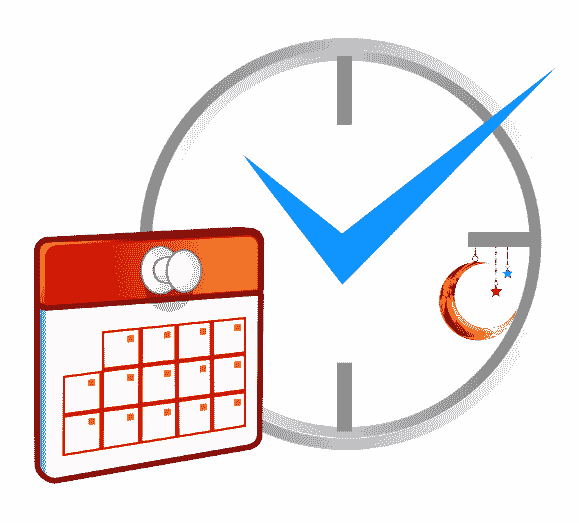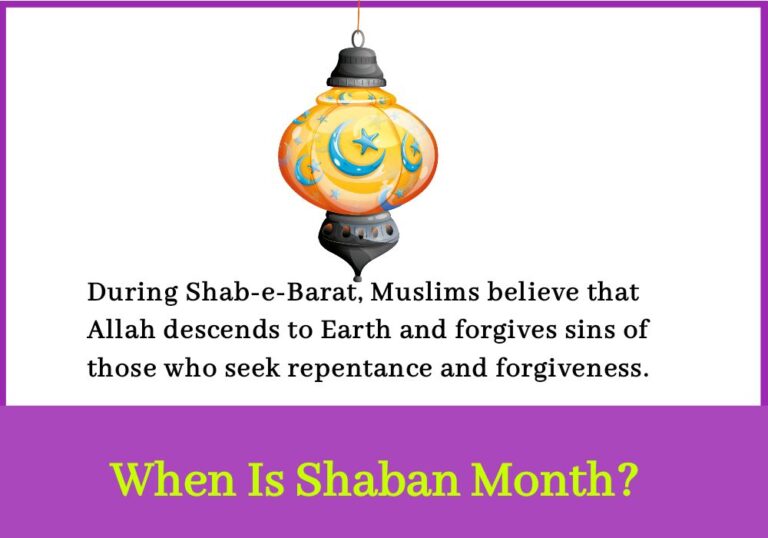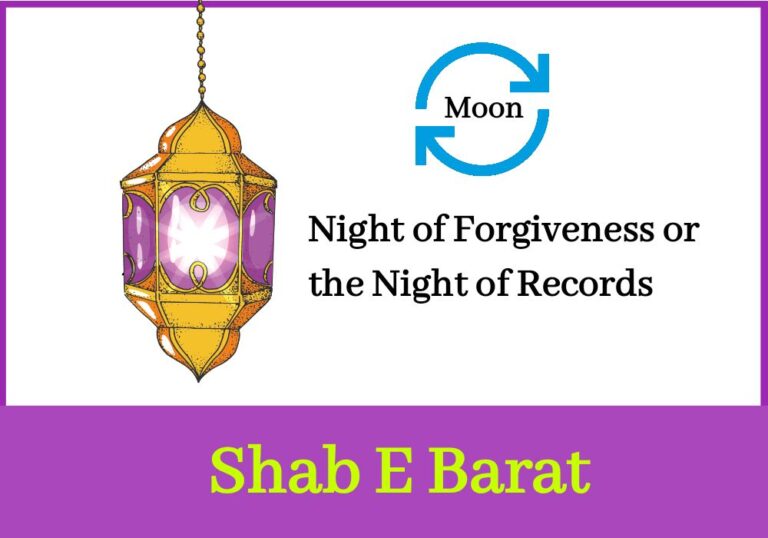Are you residing in New Jersey and eagerly looking forward to the arrival of Ramadan in 2024?
As a significant event in the Islamic calendar, Ramadan holds immense importance for Muslims worldwide, marking a time of spiritual reflection, fasting, and increased devotion.
However, determining the exact dates for this holy month can sometimes be challenging due to variations based on lunar sightings. If you are seeking clarity on when Ramadan will commence in 2024, specifically for New Jersey, look no further!
This article aims to provide the best answer supported by evidence, ensuring you are well informed about this auspicious occasion.
When Is Ramadan in New Jersey?
In New Jersey, Ramadan for the year 1445 AH is confirmed to begin on Tuesday, March 12th, 2024.
The crescent moon sighting, a significant event determining the start of Ramadan, took place after sunset on Sunday, March 10, 2024.
Reports from various branches of the Central Hilal Committee North America unanimously stated that the moon was not sighted.
The 27th Ramadan would fall on April 7th, and the 29th Ramadan would be on 9th.
Finally, the last day of Ramadan, known as the 30th of Ramadan, would be observed on either April 10th.
- Ramadan 2024 New Jersey Start Date – 12th March 2024
- Ramadan 2024 New Jersey End Date – 10th April 2024
- Hijri Year – 1445.
Ramadan 2024 New Jersey Calendar
The Ramadan 2024 New Jersey Calendar has been eagerly anticipated by the Muslim community in the state. With the Hijri year being 1445, the first day of Ramadan is expected to fall on 12th of March 2024.
| Islamic Date | Gregorian Date |
| 1 Ramadan | 12 March 2024 |
| 2 Ramadan | 13 |
| 3 Ramadan | 14 |
| 4 Ramadan | 15 |
| 5 Ramadan | 16 |
| 6 Ramadan | 17 |
| 7 Ramadan | 18 |
| 8 Ramadan | 19 |
| 9 Ramadan | 20 |
| 10 Ramadan | 21 |
| 11 Ramadan | 22 |
| 12 Ramadan | 23 |
| 13 Ramadan | 24 |
| 14 Ramadan | 25 |
| 15 Ramadan | 26 |
| 16 Ramadan | 27 |
| 17 Ramadan | 28 |
| 18 Ramadan | 29 |
| 19 Ramadan | 30 |
| 20 Ramadan | 31 |
| 21 Ramadan | 01 April |
| 22 Ramadan | 02 |
| 23 Ramadan | 03 |
| 24 Ramadan | 04 |
| 25 Ramadan | 05 |
| 26 Ramadan | 06 |
| 27 Ramadan | 07 |
| 28 Ramadan | 08 |
| 29 Ramadan | 09 |
| 30 Ramadan | 10 |
During Ramadan, Muslims abstain from food and drink from dawn until sunset. It is a time of spiritual purification and increased devotion to Allah.
Fasting is physical and requires individuals to refrain from negative thoughts and actions. By doing so, they strive to achieve self-discipline, empathy towards others, and a stronger connection with their faith.
The upcoming Ramadan in New Jersey promises to be an inspiring time for Muslims nationwide.
Ramadan Important Dates 2024
- Ramadan in New Jersey, USA, will start on 12th, 2024.
- The 27th day of Ramadan will fall on April 7th, 2024.
- The 29th day of Ramadan will be on April 9th, 2024.
- The final day of Ramadan, the 30th day, will be April 10th, 2024.
What Day Of Ramadan Is Today In New Jersey
Today’s Date in the Hijri year 1445 corresponds to the 1st of Ramadan, falling on 12th of March 2024 in New Jersey.
As Muslims around the world embark on this holy month, it is essential for those observing Ramadan in New Jersey to be aware of the exact Date and plan their spiritual journey accordingly.
This Islamic month holds immense significance as it marks a time of fasting, prayer, reflection, and increased devotion.
New Jersey’s Muslim community eagerly awaits the beginning of Ramadan. Its start date depends on various factors, such as the sighting of the moon and astronomical calculations.
With technological advancements, many rely on local mosques or Islamic organizations for official announcements regarding important dates like Ramadan’s beginning. This allows individuals to align their schedules with communal prayers and events during this sacred period.
When Are The Last 10 Days Of Ramadan 2024 in New Jersey
The last 10 days of Ramadan in 2024 will likely begin on the evening of April 1st and end on the evening of April 10th in New Jersey.
Muslims worldwide observe Ramadan based on the lunar calendar, so it is always recommended to consult with your local mosque or Islamic center for accurate information regarding specific dates and timings.
During these last 10 days, Muslims engage in intensified worship, including additional prayers, recitation of the Quran, and seeking forgiveness.
The Night of Power (Laylat al-Qadr), considered one of Islam’s holiest nights, is also believed to fall within these last 10 days. It is a time for reflection, self-discipline, and deepening one’s spiritual connection with Allah.
New Jersey Ramadan Schedule 2024: Iftar & Sehri Timing
The eagerly anticipated month of Ramadan is just around the corner, and Muslims in New Jersey are gearing up to observe this holy period with utmost devotion.
As per the latest announcement, the first day of Ramadan will fall on 12th of March 2024, depending on the moon sighting. This news has left the community excited and ready to embrace a month filled with spiritual reflection, fasting from dawn till dusk, and gathering for iftar and sehri meals.
During Ramadan, Muslims fast from sunrise to sunset as an act of worship and self-discipline. It is a time for deep introspection, increased prayers, recitation of the Quran, and acts of charity.
Conclusion Points
Ramadan in New Jersey will start on March 12th, 2024. The 30th day of Ramadan will be on April 10th, 2024. The last 10 days of Ramadan will begin on April 1st and end on April 10th.
This holy month holds immense significance for Muslims worldwide as a time of spiritual reflection, increased devotion, and fasting from dawn until sunset.
As members of the community prepare for this sacred period, it is crucial to understand and empathize with our Muslim neighbors who will be observing Ramadan.
Let us embrace diversity and foster an inclusive environment that respects everyone’s religious practices. May this upcoming Ramadan bring peace, blessings, and unity to all.
FAQs About Ramadan in Islam
What is Ramadan in Islam?
The ninth month of the Islamic calendar is Ramadan, which Muslims revere as the holy month in which they must observe the practice of fasting.
How does Ramadan begin and end each year?
The sighting of the crescent moon marks the beginning and end of the monthlong fasting period known as Ramadan. Because the Islamic calendar year is shorter than the Gregorian calendar year, Ramadan shifts 10–12 days earlier each year.
What significant event in Islamic tradition occurred during Ramadan?
During Ramadan, particularly on the “Night of Power” (Laylat al-Qadr), God revealed the Qur’an to the Prophet Muhammad. This event is commemorated on one of the last 10 nights of Ramadan, often on the 27th night.
What is the primary focus of Ramadan for Muslims?
Ramadan is a period of fasting, prayer, and self-reflection. It is a time for Muslims to strengthen their relationship with Allah (SWT) through fasting, prayer, and good intentions.
What are the rewards for observing Ramadan with fasting, prayer, and faithfulness?
God forgives the past sins of those who observe Ramadan with fasting, prayer, and faithful intention. It is a month of spiritual growth and purification.
Is Ramadan primarily a period of atonement for Muslims?
No, Ramadan is primarily a time for Muslims to practice self-restraint and discipline. It is not solely about atonement but rather about personal growth and spiritual development.
What does ṣawm mean in the context of Ramadan?
Ṣawm means “to refrain.” In Ramadan, it refers to the obligation to refrain from food, drink, sexual activity, and immoral behavior between dawn and dusk.
What is the significance of refraining from immoral behavior during Ramadan?
Refraining from immoral behavior, including impure thoughts, is as important as abstaining from food and drink during Ramadan. It is a holistic form of self-purification.
How do Muslims break their fast during Ramadan?
After the sunset prayer, Muslims break their fast with a meal called ifṭār. This meal typically starts with dates, followed by other foods, and is often shared with family and friends.
Are there additional prayers performed during Ramadan?
Yes, additional prayers called tawarīḥ prayers are performed at night, preferably in congregation at the mosque. During these prayers, the entire Qur’an may be recited over the month.
How do Muslims ensure they wake up for the predawn meal during Ramadan?
To ensure they wake up for the predawn meal (suḥūr), some communities sound drums or ring bells in the predawn hours as a reminder that it is time to eat before dawn.
What can invalidate a fast during Ramadan, and how can it be made up?
Eating or drinking at the wrong time can invalidate a fast, but a lost day of fasting can be made up with an extra day of fasting.
Who is exempt from fasting during Ramadan?
During the month of Ramadan, people who are pregnant or breastfeeding, children, the elderly, those who are physically or mentally ill, travelers on lengthy treks, and weak travelers do not have to fast.
What is the significance of Eid al-Fitr, and how is it celebrated?
Eid al-Fitr, the “Feast of Fast-Breaking,” marks the end of Ramadan. It is celebrated with new clothes, special pastries, gifts, mosque prayers, visiting graves, and family gatherings.
What is the other major religious holiday in the Muslim calendar besides Eid al-Fitr?
Eid al-Adha is the other major religious holiday in the Muslim calendar. It marks the end of the Hajj pilgrimage to Mecca and is celebrated with rituals and prayers.
What are some common traditions during Eid al-Fitr?
Traditions include
- wearing new clothes,
- baking special pastries,
- exchanging gifts,
- visiting the graves of relatives and
- gathering for family meals and mosque prayers.
Why is Ramadan considered a significant month for Muslims?
Ramadan is significant as it offers Muslims a dedicated period for self-improvement, spiritual reflection, and strengthening their connection with Allah (SWT).
What role does fasting play in Ramadan?
During the month of Ramadan, practicing Muslims are expected to fast from eating and drinking in accordance with one of Islam’s Five Pillars. It fosters self-discipline, empathy for the less fortunate, and spiritual growth.
What is the broader interpretation of ṣawm (refraining) in Islam?
Ṣawm is interpreted as refraining not only from food and drink but also from immoral behavior, including unkind thoughts and actions, during daylight hours.
How does the timing of Ramadan change from year to year?
As a result of the discrepancy between the Islamic calendar and the Gregorian calendar, the month of Ramadan begins 10–12 days earlier each year. Because of this change, Ramadan now takes place across a variety of seasons across a cycle of 33 years.






